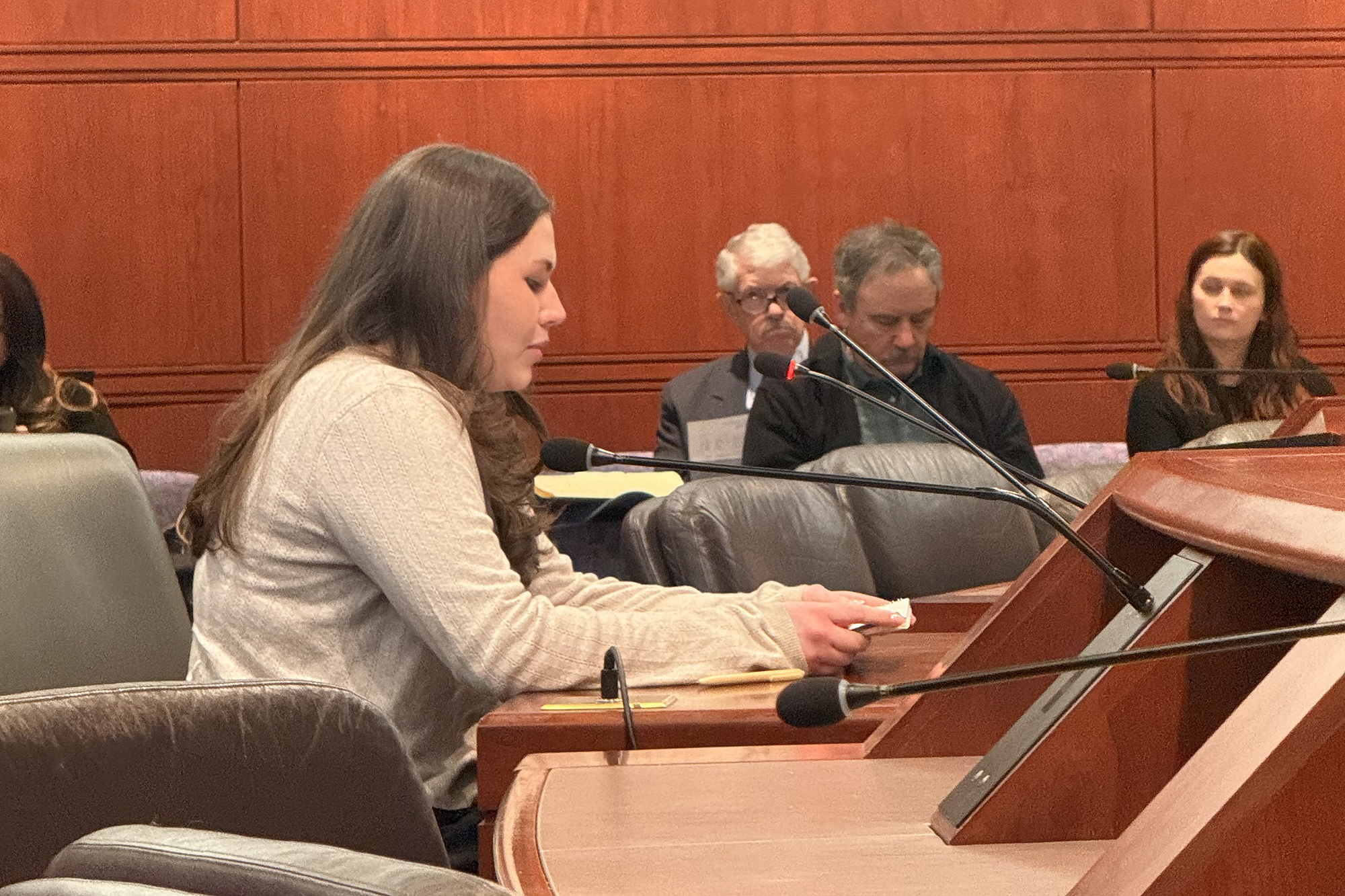
An internship program at UConn’s School of Social Work is making the world a little brighter – and healthier – for a number of Hartford’s senior citizens, while also providing future social workers with front-line experience dealing with a needy population.
The Hartford Partnership Program for Aging Education, a partnership of the Institute of Living, Hartford Hospital, and the School of Social Work, brings students working toward a master’s degree in social work into the halls, apartments, and community rooms of seven Hartford-based senior housing complexes. The students go door to door, in an effort to discuss the residents’ well being and mental health.
Minority Outreach
The program is the only one in the nation that specifically targets minority populations.
“African Americans and Latinos are the least likely populations to reach out and seek help, especially with mental health issues such as depression; and culture is a huge factor,” says Karen Bullock, a professor of social work and director of the Hartford Partnership for Aging Education. Of the 20 interns who have trained in the healthy aging program thus far, all are from underrepresented populations and many, including Bullock, speak Spanish.
“It’s critical to prepare practitioners who are representative of the racial and ethnic minority groups that make up our older adult population in the City of Hartford,” Bullock says. “As our older adult population in the United States becomes more racially and ethnically diverse, it becomes increasingly important for schools of social work and service providers to prepare practitioners to meet the needs of these older adults.”
Team Work
The program, funded by the New York Academy of Medicine, is now in its third year, and has reached more than 950 people.
Students are teamed with a licensed clinical social worker, an advanced practice registered nurse, and a psychiatrist. They spend as much as an hour with each resident, administering screenings for memory loss and depression, medicine management, and other mental health outreach services. Eugene Hickey, director of social work at the Institute of Living, organized the team of mental health professionals who provide the services of the Healthy Aging Program.

The students also participate in health education forums in the buildings’ community rooms, distribute brochures that describe depression and other illnesses, and provide information on health and wellness.
It isn’t an easy job.
“Some of the people are skeptical, they wonder what our hidden agenda is,” says Chris Parker, a first-year MSW student from Hartford. “People prey on these folks. They’re a vulnerable population. But when they see that we deliver what we said we would, they’re initially surprised, and then they want us to come back. I’ve never been to a place that didn’t want us back.
“I wish we could do more,” he adds. “They just don’t get a lot of service in these complexes.”
Bullock, also a Hartford resident, says that’s one of the main reasons she was interested in targeting the senior communities, all in the poorest sections of the city.
“Seniors are so in need of these services,” she says. “They’re so isolated. Many of them report that they rarely get visits from anyone, and they don’t get out. They seldom interact with other people in their communities.”
The program was initially funded through a $75,000, two-year start-up grant from the John A. Hartford Foundation. During that time, Bullock’s group was charged with developing a model for the local program and attracting continuing funding. That model turned out to be a partnership with Hartford Hospital and the Institute for Living. The continuing funding source turned out to be the North Central Area Agency on Aging, which provides annual stipends of $3,000 to each of 10 students.
Developing Skills
Stipends also allow some students to continue the work during summer.
Before going into the field, the students must learn a specific skill set, says Bullock. This includes how to problem solve, broker, advocate, and create and maintain professional relationships. They must demonstrate that they’re ready, and are put through a rigorous assessment process, including an evaluation of their interviewing skills and ability to engage and communicate with residents of diverse cultures.
“One reason this program is unique is because in most mental health programs people come to your office. You have some preliminary data and know a little bit about what’s happening with each person before you actually see them in your office,” Bullock says. “In this outreach program the students essentially make cold calls. We knock on doors. They have to negotiate, use interpersonal skills to gain rapport, and maintain professional boundaries, which precedes the interviewing. Then they have to probe in order to make good assessments, and when necessary, they also make referrals. Each student has to be knowledgeable about available services in the community so that they know where to refer people.”
They also learn about the power of collective effort.
“Every other week FoodShare comes out, and this is an ideal time for the outreach team to be in the community,” Bullock says. “A lot of the seniors will come out because it’s a chance for them to get bread, vegetables, and other basics. We can talk with them about their mood and memory as they wait to collect their groceries. We have also helped to distribute the food, when helping hands were needed. It’s a great opportunity for our students to have contact with a larger group of seniors, and it lets the residents know we’re not just there to collect data – we’re there to help.”
Ultimately, says Bullock, the training will provide an excellent base for the students who are planning to work with older adults once they graduate. And it’s a big help to Hartford’s aging minority population.
“As we prepare graduate social work students to be competent practitioners, we’re chipping away at the issues that can become barriers to mental health access,” Bullock says. “We have a lot of work to do, but we’re chipping away.”


